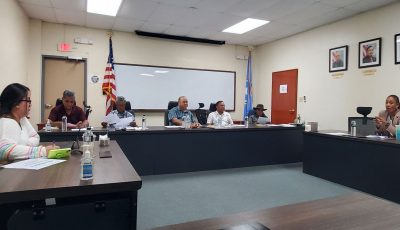IPI wants claims of junket operator dismissed
Imperial Pacific International (CNMI) LLC has filed a motion to dismiss claims of breach of fiduciary duty in the lawsuit filed by BigBang Entertainment LLC, a junket operator who is suing the casino operator in the U.S. District Court for the NMI.
IPI, through Matthew Holley, has asked the District Court for the NMI to dismiss the fifth and sixth causes of actions in the suit filed by BigBang Entertainment, a junket operator that IPI had hired to arrange for “VIPs,” or wealthy clients, to gamble at the IPI casino.
The fifth and sixth causes of actions Holley is referring to are claims of breach of fiduciary duty.
He sought to have the suit dismissed “on the ground that it fails to state a claim upon which relief can be granted,” said Holley.
BigBang is also suing IPI for breach of contract, sum certain, conversion by demand and refusal, non-gratuitous bailment, and unjust enrichment.
Holley argued that BigBang did not plead any specific facts supporting its allegation that IPI owed the junket operator a fiduciary duty.
“Accordingly, the court should dismiss BigBang’s fifth cause of action; negligent breach of fiduciary duty. BigBang’s fifth cause of action is based entirely on the existence of a fiduciary relationship between BigBang and IPI. As explained, general common law, as followed by the Commonwealth, does not recognize a fiduciary relationship between a casino operator and a junket operator without an explicit agreement by IPI to act as a fiduciary for the benefit of BigBang, either in the junket agreement or any other agreement between the parties. On its face, therefore, BigBang’s fifth cause of action, negligent breach of fiduciary duty, fails to state a claim upon which relief may be granted,” he said.
“Similarly, the court should dismiss BigBang’s sixth cause of action, intentional breach of fiduciary duty,” Holley added.
BigBang Entertainment initially asked the local court to order IPI to return the deposited amount the plaintiff made to the casino developer as part of their agreement in the amount of $351,652.65.
The case has since been transferred to the U.S. District Court for the NMI.



























